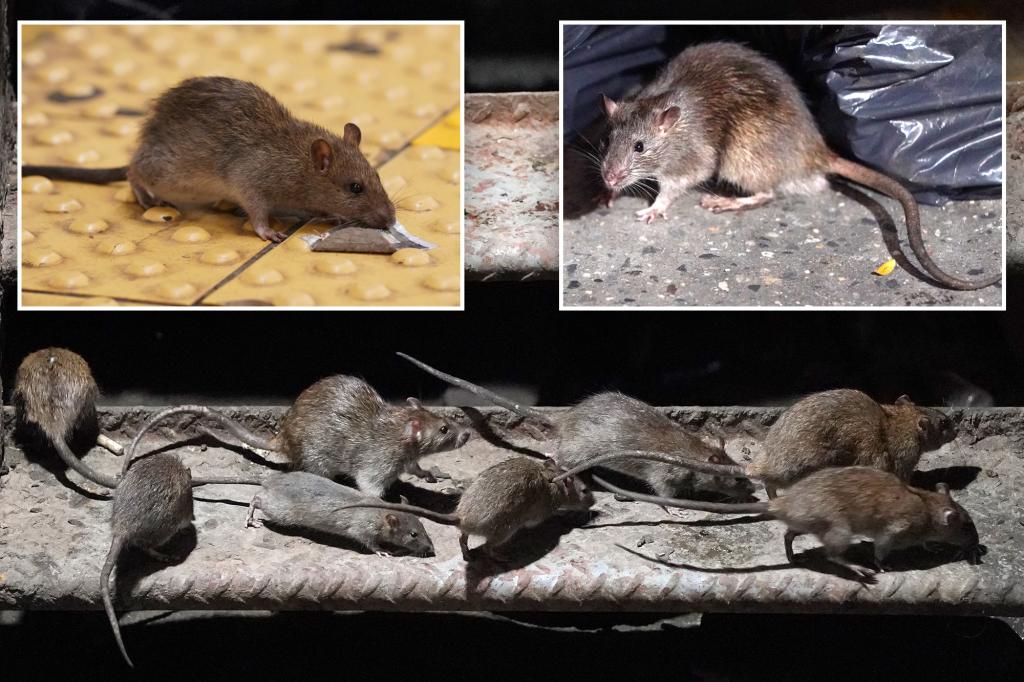New York City has taken a new approach in its ongoing battle against rats by approving a measure to use rodent birth control in rat traps. The City Council’s bill, known as “Flaco’s Law,” authorizes a program to distribute a contraceptive pellet called ContraPest in rat-accessible containers throughout the city. The goal is to sterilize rats to prevent them from reproducing and further infesting the city streets with generations of rodents. The program will be monitored through monthly inspections to track the consumption of pellets in various neighborhoods.
Council member Shaun Abreu, who introduced the bill, emphasized the importance of finding a solution to the rat problem that does not harm other animals unintentionally. The use of poison to eradicate rats has proven ineffective, prompting the need for alternative methods like rodent birth control. The program aims to control the rat population without resorting to lethal measures that could harm other wildlife. The success of previous attempts at using contraceptives to control rat populations has been limited, but proponents of Flaco’s Law are hopeful that ContraPest will be more effective in attracting rats and reducing their numbers.
The pilot program will be implemented for at least 12 months, with inspectors conducting regular checks to monitor the consumption of contraceptive pellets by rats. The contraceptive bait is designed to be enticing to rats, with a combination of salty, sweet, and fatty materials that attract the rodents to bring it back to their burrows. If successful, the program could offer a more humane and effective way to address the city’s persistent rat problem. Mayor Adams recently declared war on rats and appointed a “rat czar” to oversee efforts to control the rodent population, highlighting the city’s commitment to addressing the issue.
New York City has a history of attempting various methods to control its rat population, including using estrogen-laced food and contraceptives in the past. Despite these efforts, the rat problem has persisted, leading to the current initiative to use ContraPest in rat traps. The hope is that by targeting rats with birth control, the city can effectively manage the rodent population and reduce the risks associated with widespread infestations. Animal rights groups, including PETA, have expressed support for the program, citing the importance of prioritizing humane control methods over lethal alternatives.
The decision to use rodent birth control in rat traps represents a shift towards more sustainable and ethical practices in pest control. By focusing on sterilizing rats rather than exterminating them, the city hopes to achieve long-term success in managing its rat population. The use of ContraPest in rat-accessible containers throughout different neighborhoods reflects a targeted approach to addressing the issue in a systematic and thorough manner. As the program progresses, ongoing monitoring and evaluation will be crucial to determining its effectiveness and potential for future expansion to additional areas of the city.
Overall, New York City’s adoption of rodent birth control in rat traps signifies a progressive and innovative approach to pest management. By exploring alternative methods that prioritize non-lethal control measures, the city is demonstrating a commitment to addressing environmental and animal welfare concerns. The success of Flaco’s Law and the implementation of the ContraPest program could serve as a model for other cities grappling with similar rat infestations. Through ongoing partnerships with stakeholders, continued research, and adaptability in pest control strategies, cities can work towards more sustainable and humane solutions to the challenges posed by urban rat populations.


